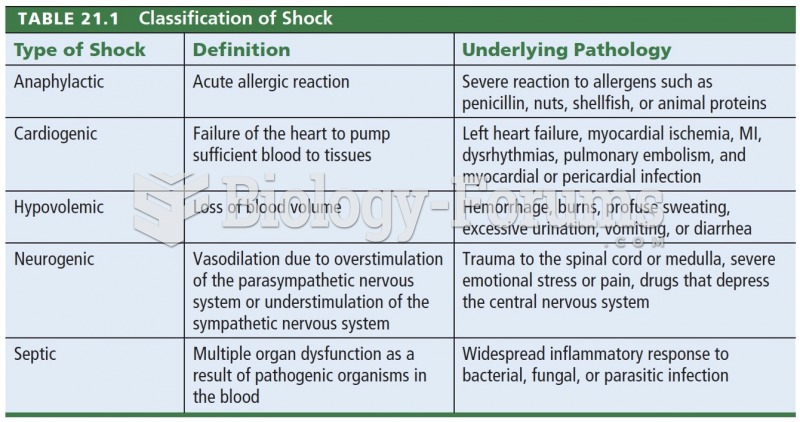|
|
|
Human neurons are so small that they require a microscope in order to be seen. However, some neurons can be up to 3 feet long, such as those that extend from the spinal cord to the toes.
There are immediate benefits of chiropractic adjustments that are visible via magnetic resonance imaging (MRI). It shows that spinal manipulation therapy is effective in decreasing pain and increasing the gaps between the vertebrae, reducing pressure that leads to pain.
The B-complex vitamins and vitamin C are not stored in the body and must be replaced each day.
People with high total cholesterol have about two times the risk for heart disease as people with ideal levels.
Between 1999 and 2012, American adults with high total cholesterol decreased from 18.3% to 12.9%







